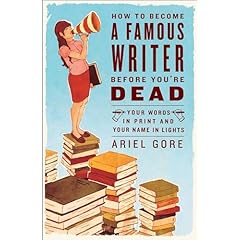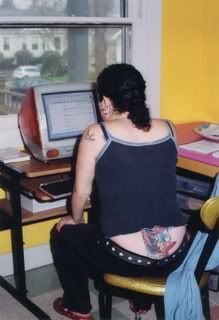By ANNE RICE
http://www.nytimes.com/2005/09/04/opinion/04rice.htmlSeptember 4, 2005
La Jolla, Calif.
WHAT do people really know about New Orleans?
Do they take away with them an awareness that it has always been not only a great white metropolis but also a great black city, a city where African-Americans have come together again and again to form the strongest African-American culture in the land?
The first literary magazine ever published in Louisiana was the work of black men, French-speaking poets and writers who brought together their work in three issues of a little book called L'Album Littéraire. That was in the 1840's, and by that time the city had a prosperous class of free black artisans, sculptors, businessmen, property owners, skilled laborers in all fields. Thousands of slaves lived on their own in the city, too, making a living at various jobs, and sending home a few dollars to their owners in the country at the end of the month.
This is not to diminish the horror of the slave market in the middle of the famous St. Louis Hotel, or the injustice of the slave labor on plantations from one end of the state to the other. It is merely to say that it was never all "have or have not" in this strange and beautiful city.
Later in the 19th century, as the Irish immigrants poured in by the thousands, filling the holds of ships that had emptied their cargoes of cotton in Liverpool, and as the German and Italian immigrants soon followed, a vital and complex culture emerged. Huge churches went up to serve the great faith of the city's European-born Catholics; convents and schools and orphanages were built for the newly arrived and the struggling; the city expanded in all directions with new neighborhoods of large, graceful houses, or areas of more humble cottages, even the smallest of which, with their floor-length shutters and deep-pitched roofs, possessed an undeniable Caribbean charm.
Through this all, black culture never declined in Louisiana. In fact, New Orleans became home to blacks in a way, perhaps, that few other American cities have ever been. Dillard University and Xavier University became two of the most outstanding black colleges in America; and once the battles of desegregation had been won, black New Orleanians entered all levels of life, building a visible middle class that is absent in far too many Western and Northern American cities to this day.
The influence of blacks on the music of the city and the nation is too immense and too well known to be described. It was black musicians coming down to New Orleans for work who nicknamed the city "the Big Easy" because it was a place where they could always find a job. But it's not fair to the nature of New Orleans to think of jazz and the blues as the poor man's music, or the music of the oppressed.
Something else was going on in New Orleans. The living was good there. The clock ticked more slowly; people laughed more easily; people kissed; people loved; there was joy. Which is why so many New Orleanians, black and white, never went north. They didn't want to leave a place where they felt at home in neighborhoods that dated back centuries; they didn't want to leave families whose rounds of weddings, births and funerals had become the fabric of their lives. They didn't want to leave a city where tolerance had always been able to outweigh prejudice, where patience had always been able to outweigh rage. They didn't want to leave a place that was theirs.
And so New Orleans prospered, slowly, unevenly, but surely - home to Protestants and Catholics, including the Irish parading through the old neighborhood on St. Patrick's Day as they hand out cabbages and potatoes and onions to the eager crowds; including the Italians, with their lavish St. Joseph's altars spread out with cakes and cookies in homes and restaurants and churches every March; including the uptown traditionalists who seek to preserve the peace and beauty of the Garden District; including the Germans with their clubs and traditions; including the black population playing an ever increasing role in the city's civic affairs.
Now nature has done what the Civil War couldn't do. Nature has done what the labor riots of the 1920's couldn't do. Nature had done what "modern life" with its relentless pursuit of efficiency couldn't do. It has done what racism couldn't do, and what segregation couldn't do either. Nature has laid the city waste - with a scope that brings to mind the end of Pompeii.
I share this history for a reason - and to answer questions that have arisen these last few days. Almost as soon as the cameras began panning over the rooftops, and the helicopters began chopping free those trapped in their attics, a chorus of voices rose. "Why didn't they leave?" people asked both on and off camera. "Why did they stay there when they knew a storm was coming?" One reporter even asked me, "Why do people live in such a place?"
Then as conditions became unbearable, the looters took to the streets. Windows were smashed, jewelry snatched, stores broken open, water and food and televisions carried out by fierce and uninhibited crowds.
Now the voices grew even louder. How could these thieves loot and pillage in a time of such crisis? How could people shoot one another? Because the faces of those drowning and the faces of those looting were largely black faces, race came into the picture. What kind of people are these, the people of New Orleans, who stay in a city about to be flooded, and then turn on one another?
Well, here's an answer. Thousands didn't leave New Orleans because they couldn't leave. They didn't have the money. They didn't have the vehicles. They didn't have any place to go. They are the poor, black and white, who dwell in any city in great numbers; and they did what they felt they could do - they huddled together in the strongest houses they could find. There was no way to up and leave and check into the nearest Ramada Inn.
What's more, thousands more who could have left stayed behind to help others. They went out in the helicopters and pulled the survivors off rooftops; they went through the flooded streets in their boats trying to gather those they could find. Meanwhile, city officials tried desperately to alleviate the worsening conditions in the Superdome, while makeshift shelters and hotels and hospitals struggled.
And where was everyone else during all this? Oh, help is coming, New Orleans was told. We are a rich country. Congress is acting. Someone will come to stop the looting and care for the refugees.
And it's true: eventually, help did come. But how many times did Gov. Kathleen Blanco have to say that the situation was desperate? How many times did Mayor Ray Nagin have to call for aid? Why did America ask a city cherished by millions and excoriated by some, but ignored by no one, to fight for its own life for so long? That's my question.
I know that New Orleans will win its fight in the end. I was born in the city and lived there for many years. It shaped who and what I am. Never have I experienced a place where people knew more about love, about family, about loyalty and about getting along than the people of New Orleans. It is perhaps their very gentleness that gives them their endurance.
They will rebuild as they have after storms of the past; and they will stay in New Orleans because it is where they have always lived, where their mothers and their fathers lived, where their churches were built by their ancestors, where their family graves carry names that go back 200 years. They will stay in New Orleans where they can enjoy a sweetness of family life that other communities lost long ago.
But to my country I want to say this: During this crisis you failed us. You looked down on us; you dismissed our victims; you dismissed us. You want our Jazz Fest, you want our Mardi Gras, you want our cooking and our music. Then when you saw us in real trouble, when you saw a tiny minority preying on the weak among us, you called us "Sin City," and turned your backs.
Well, we are a lot more than all that. And though we may seem the most exotic, the most atmospheric and, at times, the most downtrodden part of this land, we are still part of it. We are Americans. We are you.







